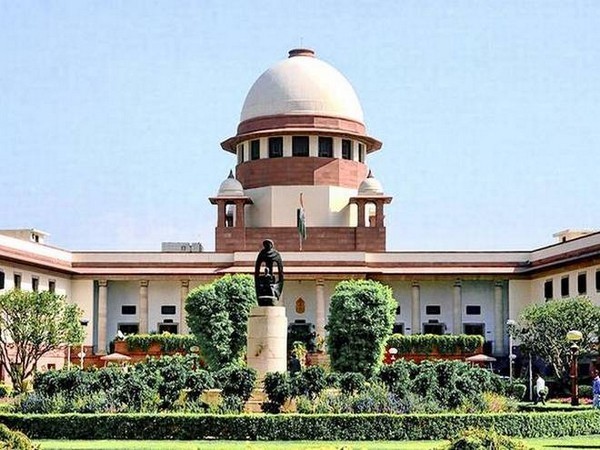Assam Accord: SC begins hearing on pleas challenging Section 6A of Citizenship Act
A bench of Chief Justice of India DY Chandrachud, Justices Surya Kant, MM Sundresh, JB Pardiwala and Manoj Misra said that Section 6A was enacted as a humanitarian measure in the wake of the 1971 Bangladesh Liberation War and is deeply interwoven in our history.

- Country:
- India
The Supreme Court on Tuesday began hearing of a batch of pleas challenging the constitutional validity of Section 6A of the Citizenship Act inserted by way of an amendment in 1985 in furtherance of the Assam Accord. A bench of Chief Justice of India DY Chandrachud, Justices Surya Kant, MM Sundresh, JB Pardiwala and Manoj Misra said that Section 6A was enacted as a humanitarian measure in the wake of the 1971 Bangladesh Liberation War and is deeply interwoven in our history.
"We can't deny that Section 6A was enacted at a point that is deeply connected to our history. Section 6A was enacted at a time when there was a different history, and India had an important role to play in the Bangladesh Liberation War, and we were a part of the war as much as Bangladesh. This was for the atrocities which were being committed on the population of East Bengal then," said the CJI. "Parliament seems to have proceeded on the basis that the immigration which took place cannot be regarded purely as illegal but it was something humanitarian", CJI further pointed out.
The apex court asked Solicitor General Tushar Mehta to inform it whether Section 6A was still in operation and the number of people who have been declared as "foreigners" till 2013. Commencing his arguments on behalf of the petitioners, senior advocate Shyam Divan told the bench that Section 6A violates the basic fabric of the Constitution of India and the values of secularism, fraternity and brotherhood contained in the Preamble.
Divan requested the bench to direct the Central government to frame a court-monitored policy for all States and Union Territories for the settlement and rehabilitation of all the persons who came to Assam. The arguments in the case will resume on Wednesday in the case.
On the last hearing, the apex court had said the title of the proceedings shall be, "In Re: Section 6A of the Citizenship Act, 1955." On December 17, 2014 matter relating to citizenship in Assam was referred to the five-judge Constitution bench. On April 19, 2017, the top court constituted the bench to hear the case.
The National Register for Citizens (NRC), a list of Indian citizens containing all necessary information for their identification, was first formulated following the 1951 national census. The Assam NRC is meant to identify illegal immigrants in the state who migrated from Bangladesh after March 25, 1971.
In 1985, the Indian government and the representatives of the Assam Movement negotiated and drafted the Assam Accord and created categories of immigrants. The NRC exercise in Assam was carried out under Section 6A of the Citizenship Act 1955 and the rules framed in the Assam Accord 1985.
Section 6A of the Act was introduced to give effect to the Assam Accord. It provides the framework to recognise migrants in Assam as Indian citizens or to expel them based on the date of their migration. The provision provides that those who have come to Assam on or after January 1, 1966, but before March 25, 1971, from specified territories, including Bangladesh in 1985, and since then are residents of Assam, must register themselves under section 18 for citizenship. Therefore, the provision fixes March 25, 1971, as the cut-off date for granting citizenship to Bangladeshi migrants in Assam.
In 2013, the apex court directed the State of Assam to update the NRC. On July 30, 2018, the final draft of the Assam NRC was released and 40.07 lakh applicants out of 3.29 crores were excluded from the NRC list, creating uncertainty about their citizenship status.
Later, the apex court said that this was merely a draft NRC and no action could be taken based on it. On August 31, 2019, the final NRC list was published and 19 lakh persons were excluded. Assam Sanmilita Mahasangha, a Guwahati-based civil society organisation along with others had challenged Section 6A way back in 2012 while arguing that Section 6A is discriminatory, arbitrary and illegal so far as it provides for different cut-off dates for regularising illegal migrants who entered Assam and the rest of India.
The Bangladesh Liberation War which led to the independence of Bangladesh from Pakistan, witnessed a massive influx of migrants to India. Even before when Bangladesh gained independence from East Pakistan in 1971, migration had started to India. On March 19, 1972, Bangladesh and India entered into a treaty for friendship, cooperation and peace. (ANI)
(This story has not been edited by Devdiscourse staff and is auto-generated from a syndicated feed.)
- READ MORE ON:
- Surya Kant
- Bangladesh Liberation War
- Assam
- The National Register for Citizens NRC
- Constitution
- The Assam NRC
- Central
- Shyam Divan
- Tushar Mehta
- MM Sundresh
- Pardiwala
- Section 6A of Citizenship Act
- The Supreme Court
- Section 6A violates
- India
- Section 6A of the Citizenship Act 1955
- East Pakistan
- Section 6A
- section 18
- Indian
ALSO READ
Demands for Intervention: Protests Against Atrocities on Bangladeshi Hindus Escalate
Crisis in Bangladesh Shakes Kolkata's Trading Hub
Diplomacy in Tension: India-Bangladesh Talks Amidst Rising Concerns
Tripura Hotels Ban Bangladeshi Guests Amid Rising Tensions
Alert at Assam Border: Bangladeshi National Sent Back










